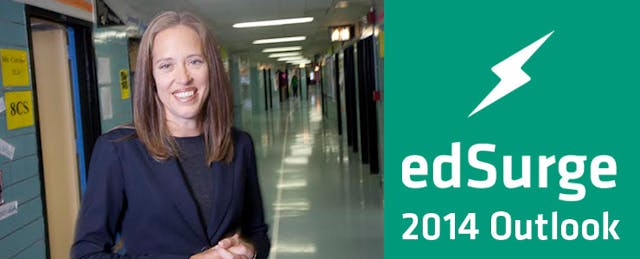Today, our workforce and economy are global, and our approach to education must be too. At first, it seems daunting. Suddenly, we’re responsible for preparing our students not just to work with their peers down the hall but with students around the world who will be their future colleagues, clients and employers.
The good news is that the globalization of education in this tech-rich era presents a tremendous opportunity. We have more information than ever before to figure out what the world’s best education systems and classrooms are doing differently. And, we have more tools at our disposal to learn from and collaborate with teachers, students and education leaders around the world.
These days, I spend much of my time visiting schools in under-resourced communities around the world as the head of a global education network called Teach For All. I co-founded Teach For All seven years ago in response to social entrepreneurs from around the world who wanted help adapting Teach For America’s model to recruit their own countries’ top college graduates to teach and become leaders in the fight to improve education.
Today, Teach For All partner organizations, from Teach For China to Enseña Chile, are operating in 32 countries. In 2014 and beyond, we will need three things to thrive in a global education age.
Information
Today, the benchmarks that matter are global. We need to set high expectations for our kids and embrace honest assessments so we know how they’re performing. The globally-aligned Common Core standards that have been adopted by 45 states are an important step in the right direction. It’s easier than ever for teachers, parents and principals to discover how they stack up against the world’s best classrooms and schools.
Through the organization America Achieves, any high school in the country has access to a critical thinking assessment based on the international PISA exam given to 15 year olds around the world. It’s no secret that on average, American students have not fared well on PISA in recent years. But in 2012 students at two BASIS charter schools in Arizona took this PISA proxy exam, and their phenomenal results prove that American teenagers can perform at the top of the world. The average BASIS student not only outperformed the typical U.S. student by nearly three years in reading and science and four years in math, but did better than the average student from Shanghai and Finland.
We’re going to be living in a golden information age in 2014 and 2015 as more states implement Common Core and as more schools sign up for globally-aligned exams like PISA. Let’s put that knowledge to good use!
Collaboration
It’s not enough to be better informed. We have to stop thinking of education as a zero-sum game and start collaborating across borders if we want to improve our collective performance. Different contexts inspire new ways of thinking and solving problems. We can learn from what successful classrooms, schools and school systems in other countries are doing well and innovate on their approaches to meet the needs of our own communities.
Social entrepreneurs across the Teach For All network are adapting ideas to tackle a universal problem: How do we give our most disadvantaged kids a life-changing education? Pioneers in Mumbai, London, Chile and the US are creating and spreading a new kind of school designed to put these students on a trajectory to greater life options. The schools in Mumbai and New York may look very different, but one would never have opened without the other.
Tools for digital collaboration in 2014 abound. Two Teach For America alums launched UClass to virtually connect classrooms around the world through a social media-style platform. The startup has reached 4,000 schools in over 90 countries, using technology to foster global learning and unite teachers and students around quality content. Other organizations like Design for Change and Global Nomads are encouraging kids to express their creativity to solve problems around the world--getting to know and understand their peers in different countries along the way.
Talent
Technology is a great asset in 21st century education. It can connect us, save us time and broaden our exposure to successful practices and example. But technology is a tool, not a panacea. And educational technology is most effective when it aims to support, not supplant, the indispensable work of great teachers, giving them more ways to engage their students, personalize instruction, and become better teachers.
The much-acclaimed Khan Academy provides curricular support for teachers, freeing up their precious energy to motivate students to practice and adapt the knowledge they learn. Often the best innovations come from people who have taught successfully. To use a few examples close to home, Teach For America alumni have created terrific tools that harness the power of edtech to help teachers become more effective and make teaching more sustainable. Kickboard is an app that’s as easy to use as Facebook and lets educators track and share data about their students. Be A Smarter Cookie allows teachers to upload videos of their classroom teaching and then receive feedback from fellow teachers and coaches. Similarly, Edthena is a video platform that allows for online coaching, peer review and group learning.
Undoubtedly, we’ll continue to see even more initiatives and apps that put the world at our fingertips. 2014 can be the year we dramatically expand educational opportunities for all kids if we embrace global standards, reach across borders to learn and improve, and focus on what matters most: attracting and keeping great people in our schools.


